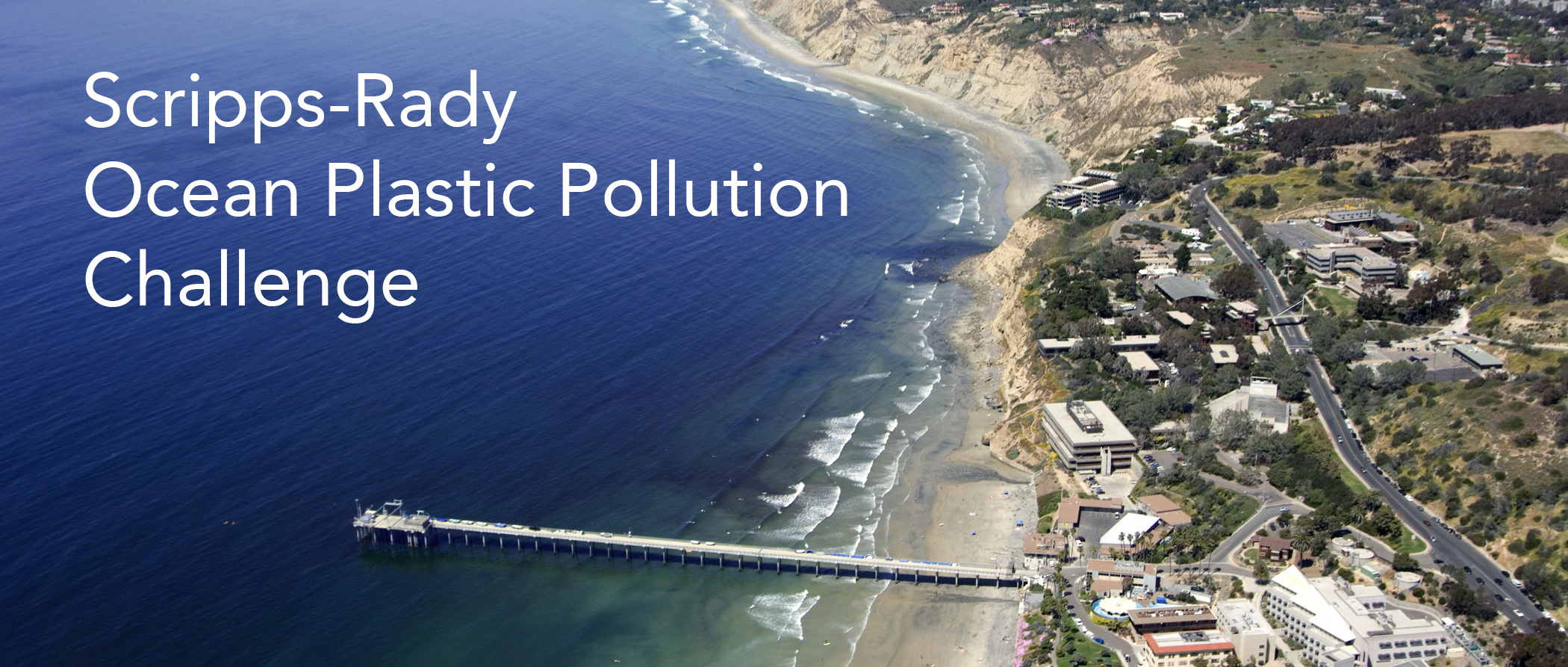
SCRIPPS-RADY OCEAN PLASTIC POLLUTION CHALLENGE
Blog Post: January 4, 2021
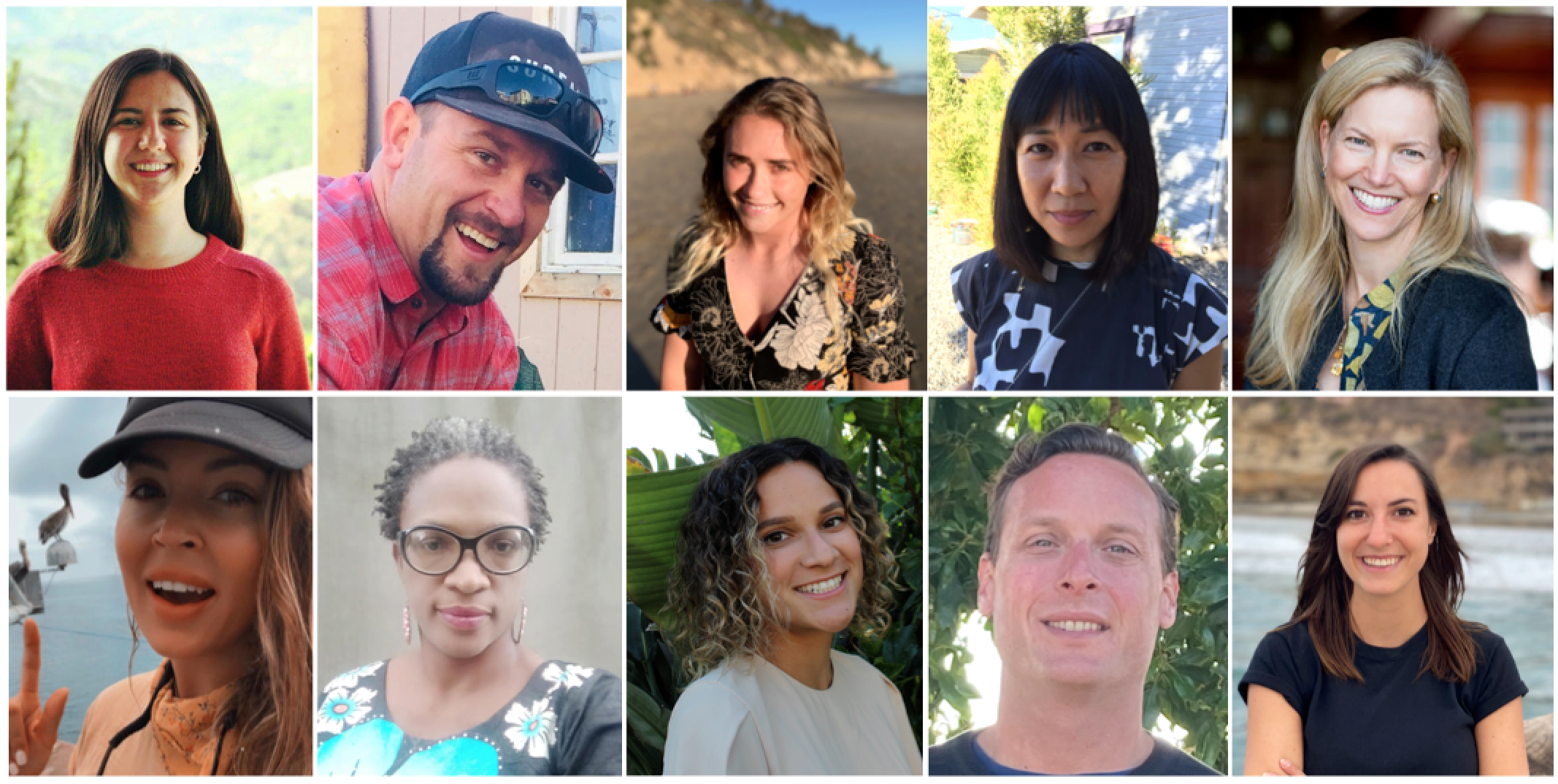
Curbing the flow of plastic into the ocean: Who's up for the Challenge?
By Charlotte Stevenson
January 4, 2021
These days, it’s not common to hear good news on the topic of plastic waste in the ocean. Today, though, we have great news. A new program, the Scripps-Rady Ocean Plastic Pollution Challenge begins January 12 with 29 incredibly talented, diverse, open-minded participants who are ready to completely rethink how we protect marine conservation and cultural areas from plastic pollution.
“The competition for this program was really steep. We received almost 300 applications from 28 countries, 22 U.S. states and territories, and from a broad array of different fields of work and study,” said Stuart Sandin, Challenge Co-Leader and Professor and Director of the Center for Marine Biodiversity and Conservation (CMBC) at Scripps Institution of Oceanography, UC San Diego. The Scripps-Rady Ocean Plastic Pollution Challenge is a partnership between the CMBC and the Center for Social Innovation and Impact (CSII) at the Rady School of Management, UC San Diego. “What is so exciting is that these 29 participants really understand what we are trying to do,” said Sandin.
The Scripps-Rady Ocean Plastic Pollution Challenge is a unique 6-month accelerator program focused on identifying effective, evidence-based approaches that will curb the flow of plastic into the ocean, with a specific focus on marine conservation and marine cultural preservation areas along California’s coast. Rather than concentrating on cleaning up plastic already in the ocean, the Challenge will target upstream solutions to reduce plastic production and reduce the generation of plastic waste.
“The problem is not all of the plastic in the ocean – that is a symptom, an outcome of the greater structural problem,” said Julie Hopper, Challenge participant and postdoctoral fellow at University of Southern California. Likewise, Nicholas Carver, a graduate student at San Francisco State University and 9-year U.S. Coast Guard veteran said, “most attention is focused on the pollution already in the oceans, not the sources of the pollution.”
The participants are coming prepared for a real challenge, and are eager to be part of something impactful. “A complex challenge often requires a complex solution,” said Colin Duncan, Challenge participant and Product Development Lead at Forever Wild Seafood in Oregon.
The participants also bring a range of experience with plastic debris. Some have very little plastic experience, like quantitative analyst, Adam Mihalik, but who has built impressively impactful forecasting models for wind farm power generation, customer energy demand, and shipping fleets. Others live and breathe plastic waste, like Alex Ferron, Rise Above Plastics Leader with the Surfrider Foundation, and Cleo Ninja Stratmann, a Ph.D. candidate, studying water, environmental and urban systems in France.
The 29 Challenge participants are a mix of professionals and graduate students who are certainly qualified and accomplished, but what truly made them stand out from other applicants was their deep-seated belief “in the power of diverse perspectives,” to use the words of participant Chiara Dorigo, Senior Associate at Schaffer&Combs.
The real value of this program is that it “brings together different disciples to tackle the plastic pollution problem from a multidisciplinary perspective,” said Challenge participant Gilbert Nyabochwa Atuga, Research Scientist at the Kenya Marine and Fisheries Research Institute. The 29 participants represent a very broad array of expertise and experience from around the world: marine and natural sciences, behavioral sciences, data science, engineering, law, policy, conservation, municipal/utility management, waste management, traditional/indigenous knowledge, community engagement, communications, and education.
The participants also see great value in “amplifying voices that are typically not at the table” and “breaking through existing silos” that traditionally have kept people within their respective sectors. As geoscientist Pilar Garcia says, “no single person had the full view of the situation.” Multiple participants stated that they are interested in solutions that take into account issues of economics, race, and class.
“I have learned that environmental issues are often heavily intertwined with the economic well-being of the working-class,” says Matthew Noto, Marine Debris Program Coordinator, Florida Department of Environmental Protection.
Jules Jackson, Indigenous Water Protector and Director of Coastal Defenders in San Diego wants “to help level the playing field so everyone can participate in saving our planet.”
Although participants touted the value of hard skills like cutting edge data modeling, behavioral science analysis, and a deep understanding of topics like plastic chemistry and waste management systems, they also were adamant in the need for Challenge teams to be stacked with well-rounded, open-minded, flexible, creative, colorful, inclusive, passionate, persistent, risk-taking individuals with high emotional intelligence.
“I truly believe that the 29 participants we have chosen for this Challenge are forward-thinking, solutions-oriented individuals who will also complement each other in a team setting,” said Ayelet Gneezy, Challenge Co-Leader and Professor of Behavioral Sciences and Marketing, Center for Social Innovation and Impact (CSII) at the Rady School of Management, UC San Diego.
The Scripps-Rady Ocean Plastic Pollution Challenge is a multi-tiered program that runs from January to June 2021. It begins with a series of short-courses to provide a foundation of how to design and create solutions, and to help all participants get up to speed on the latest data, modeling, science, policy, behavioral science, and solutions to plastic pollution, both successful and not as successful. An additional 21 outstanding individuals have been invited to participate in this tier of the program and their experiences and perspectives will substantially add value to discussions. Altogether, the program is welcoming participants from ten US states and eight other nations.
Participants will then spend the Spring engaged in team research in areas such as the application of behavioral science to reduce plastic pollution, identifying plastic pollution hotspots along California's coast, and how to better evaluate strategies such as plastic bag bans. Teams will present their new findings to all participants, and then, in June, engage in a two-day “hackathon-style” challenge to develop and pitch ideas, strategies, and solutions to an expert panel to minimize plastic from entering the ocean within California’s marine conservation areas.
“I want to be part of the solution,” says Jake Reynolds, Challenge participant and behavioural science researcher in the United Kingdom. Luckily for Jake and the other 28 participants, that is exactly what this Challenge is all about.
- - - - -
Top photo, row 1, left to right:
Participants Ozlem Tetik, Ph.D. Student in Marketing, London Business School; Steven Wright, Co-Director 4Walls International; Aubrie Fowler, South Coast Specialist, MPA Collaborative Network; Grace Lee, ReThink Disposable Program Director, Clean Water Action and Clean Water Fund; Kristina Phipps, Independent Legal and Policy Consultant.
Top photo, row 2, left to right:
Participants Jules Jackson, Founder, Coastal Defenders; Ngozi Margaret Oguguah, Researcher, Nigerian Institute for Oceanography and Marine Research; Elizabeth Plascencia, Master of Environmental Management candidate, Yale School of the Environment; Nicholas Carver, Physical Oceanographer; Kara Wiggin, Ph.D. Student at Scripps Institution of Oceanography.
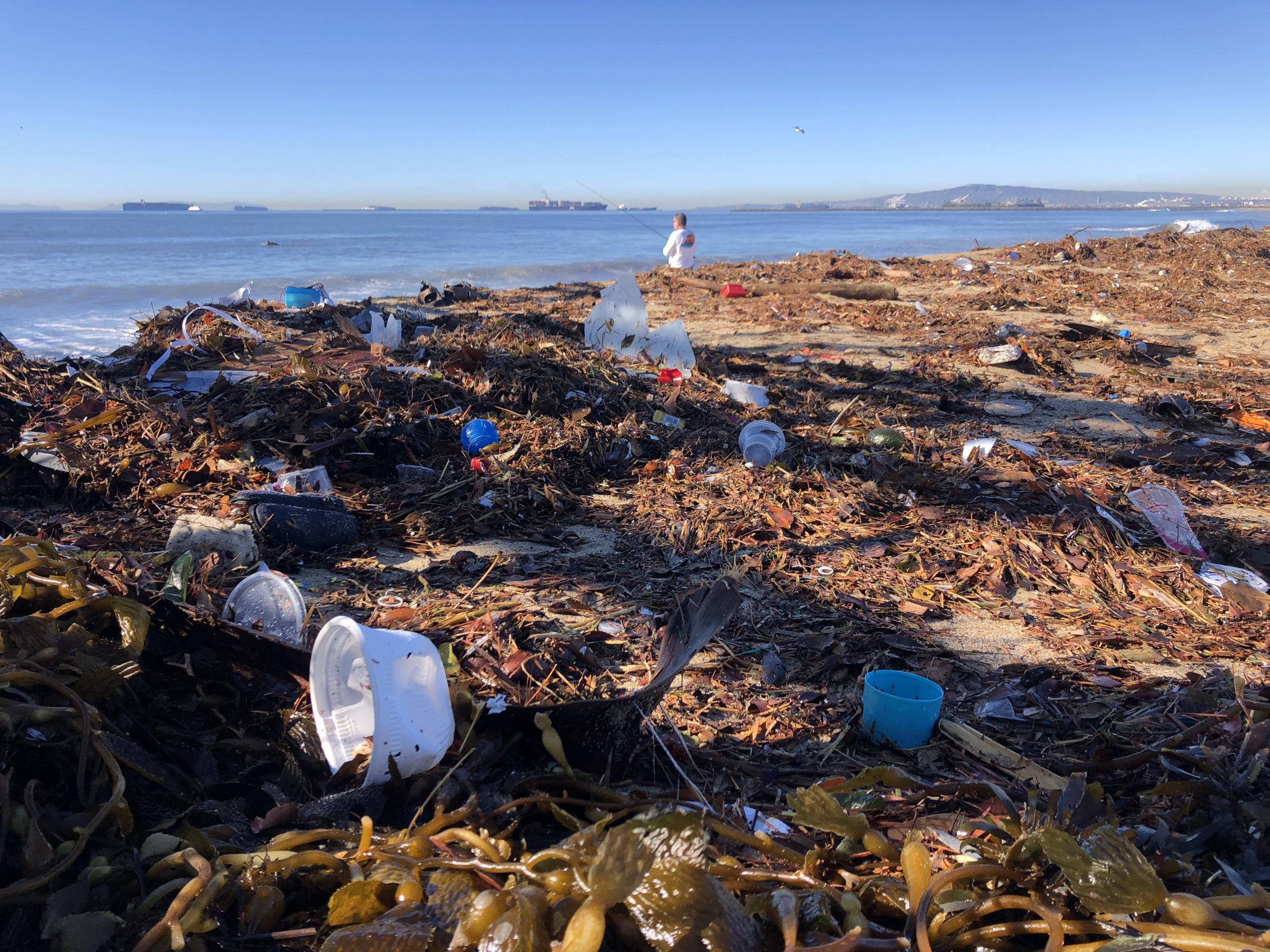
Plastic trash and debris after a rain storm, Seal Beach, Calif. December 29, 2020.

Participant Bernie Villanueva-Grzecka, Natural Resources Protection Officer, City of Dana Point
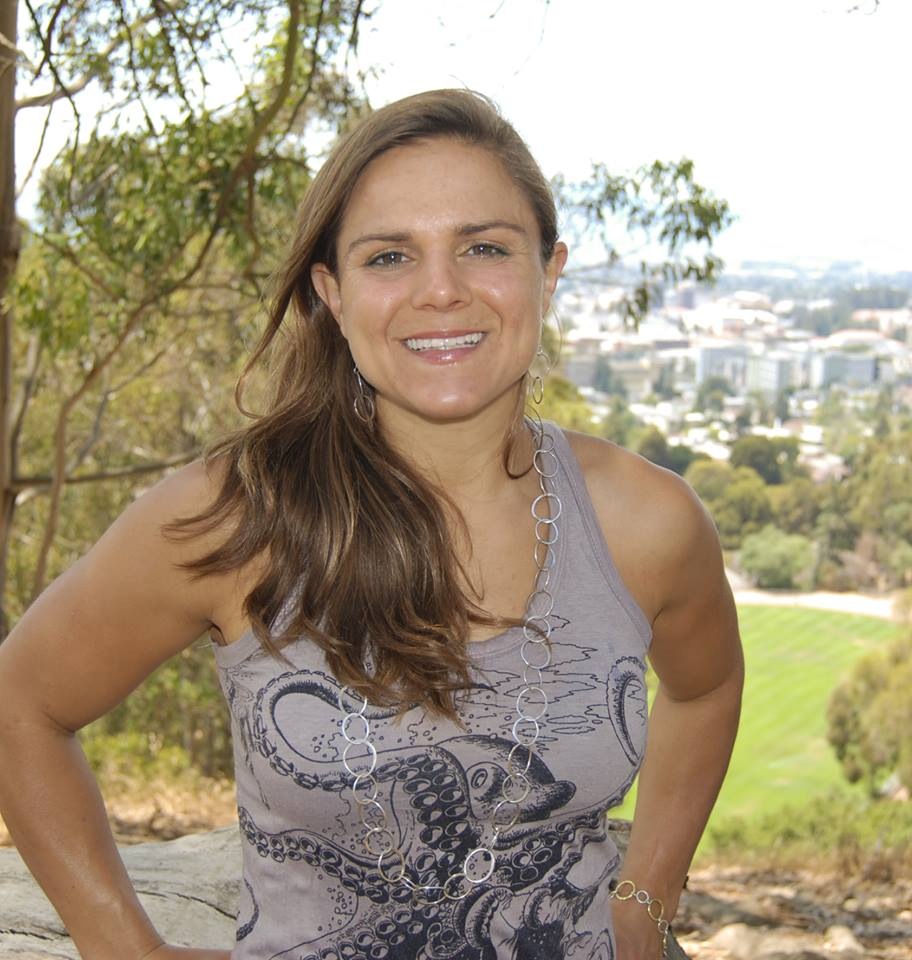
Participant Julie Hopper, postdoctoral Fellow, University of Southern California
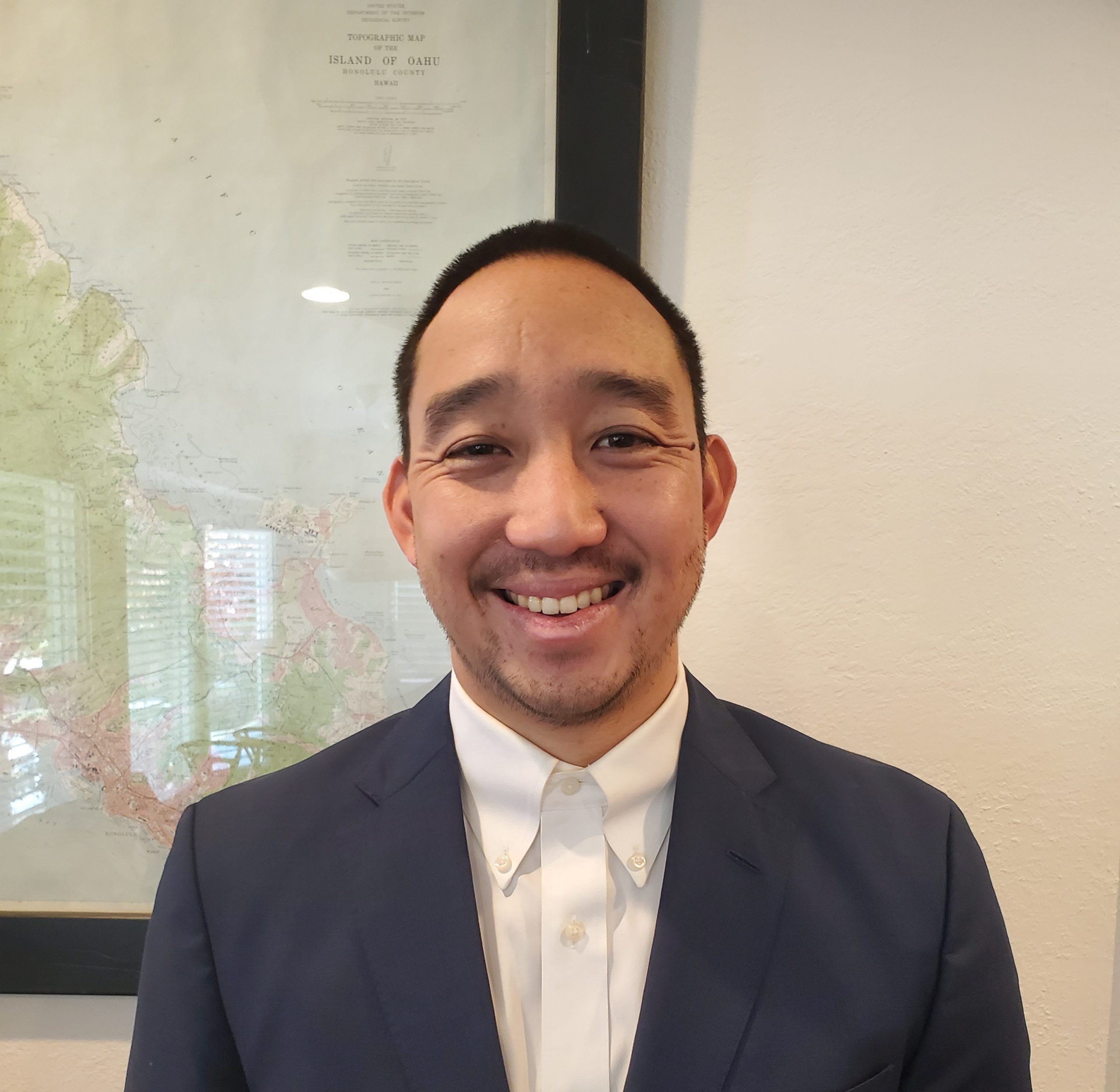
Participant Wataru Kumagai, Environmental Specialist Associate, City of Long Beach
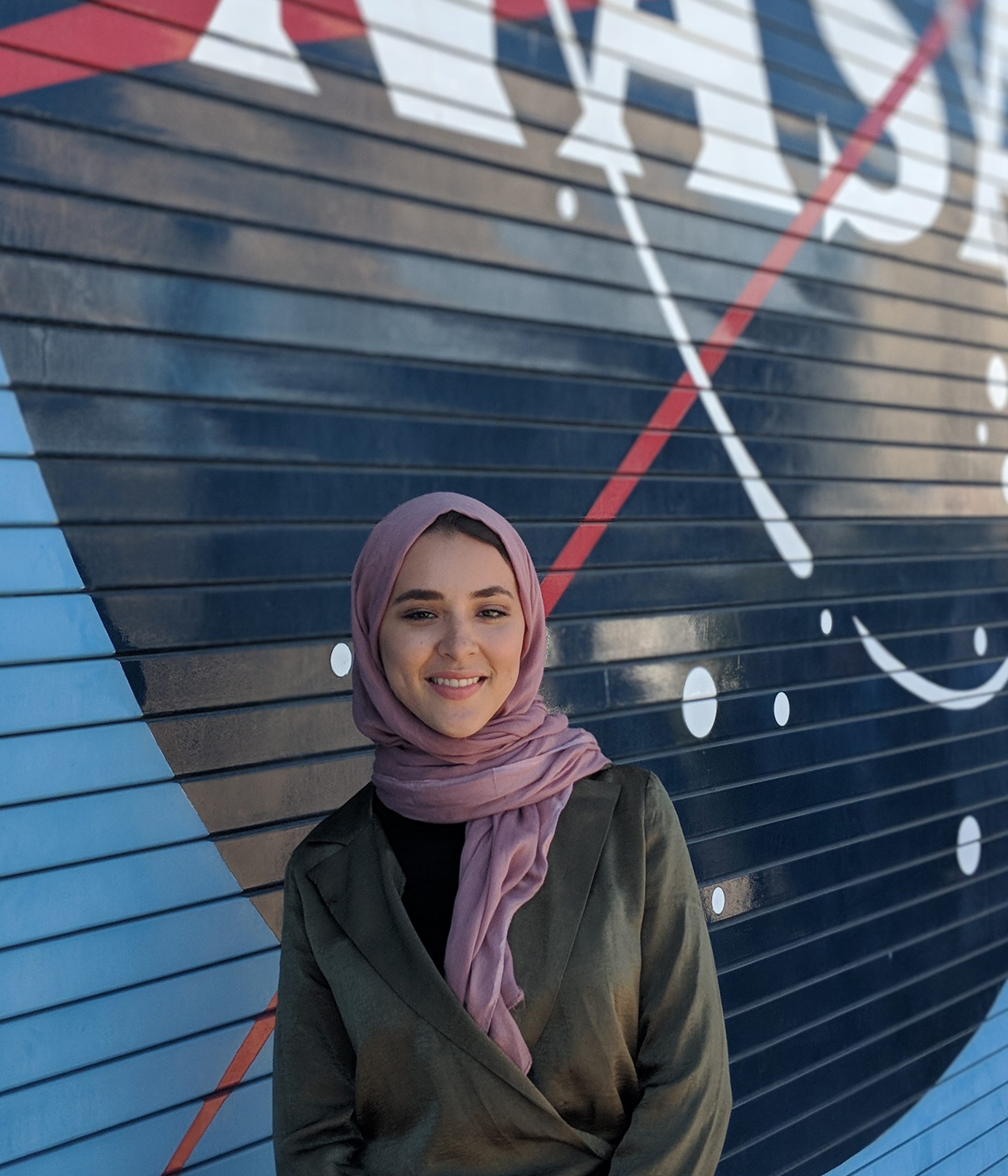
Participant Fadwa Bouhedda, Associate Scientist/Biologist for the California Department of Transportation

Participant Alex Ferron, Chair, Surfrider San Diego County
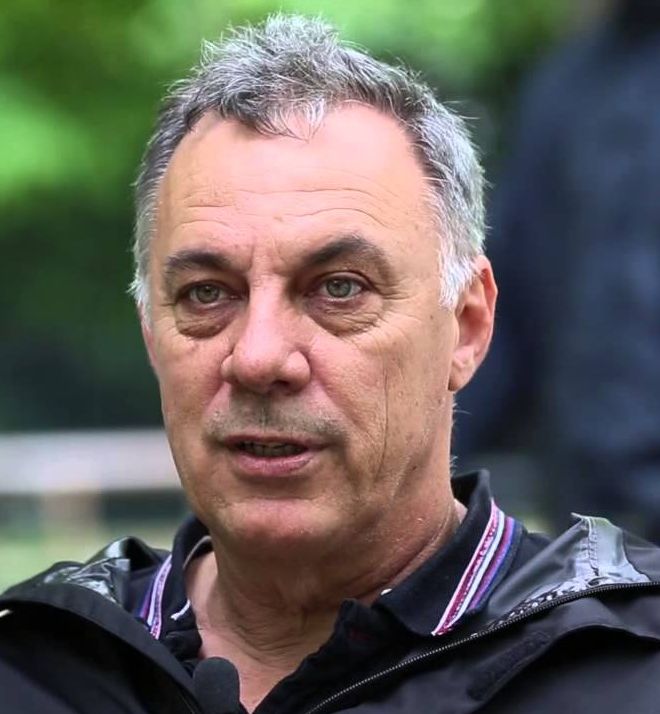
Participant Francois Galgani, Project manager at IFREMER, chair of the EU technical group on Marine Litter, co chair of the IOC GESAMP group on plastic pollution and EU Mission STARFISH board member
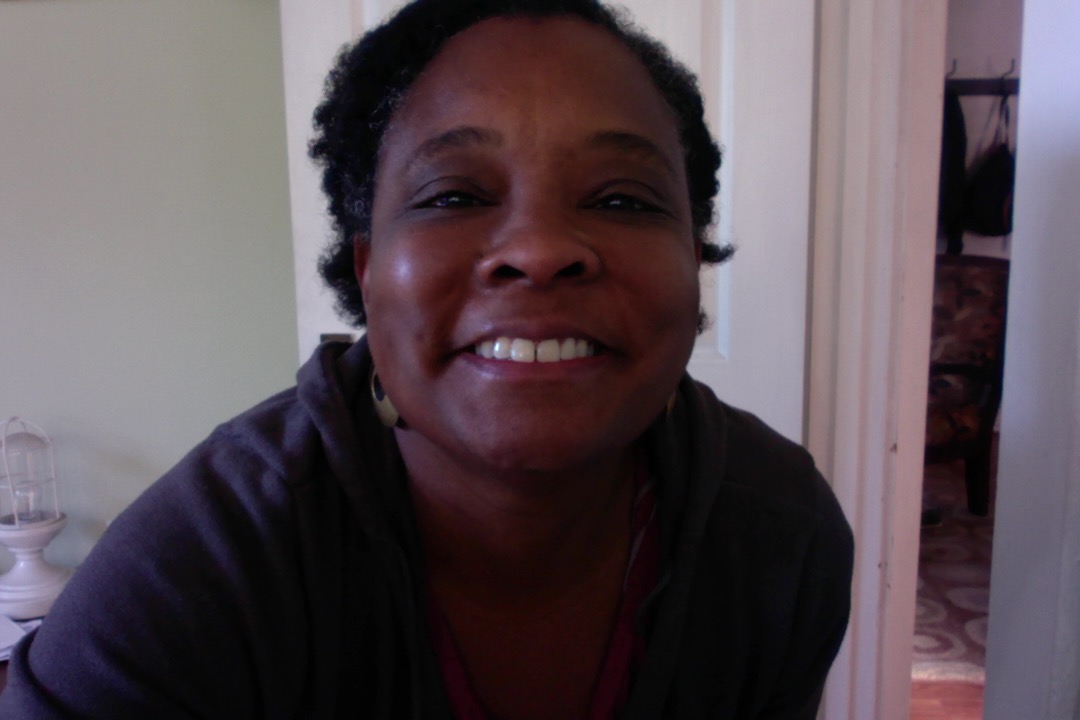
Participant Katrina Oprisko, Owner, Earthwell Refill
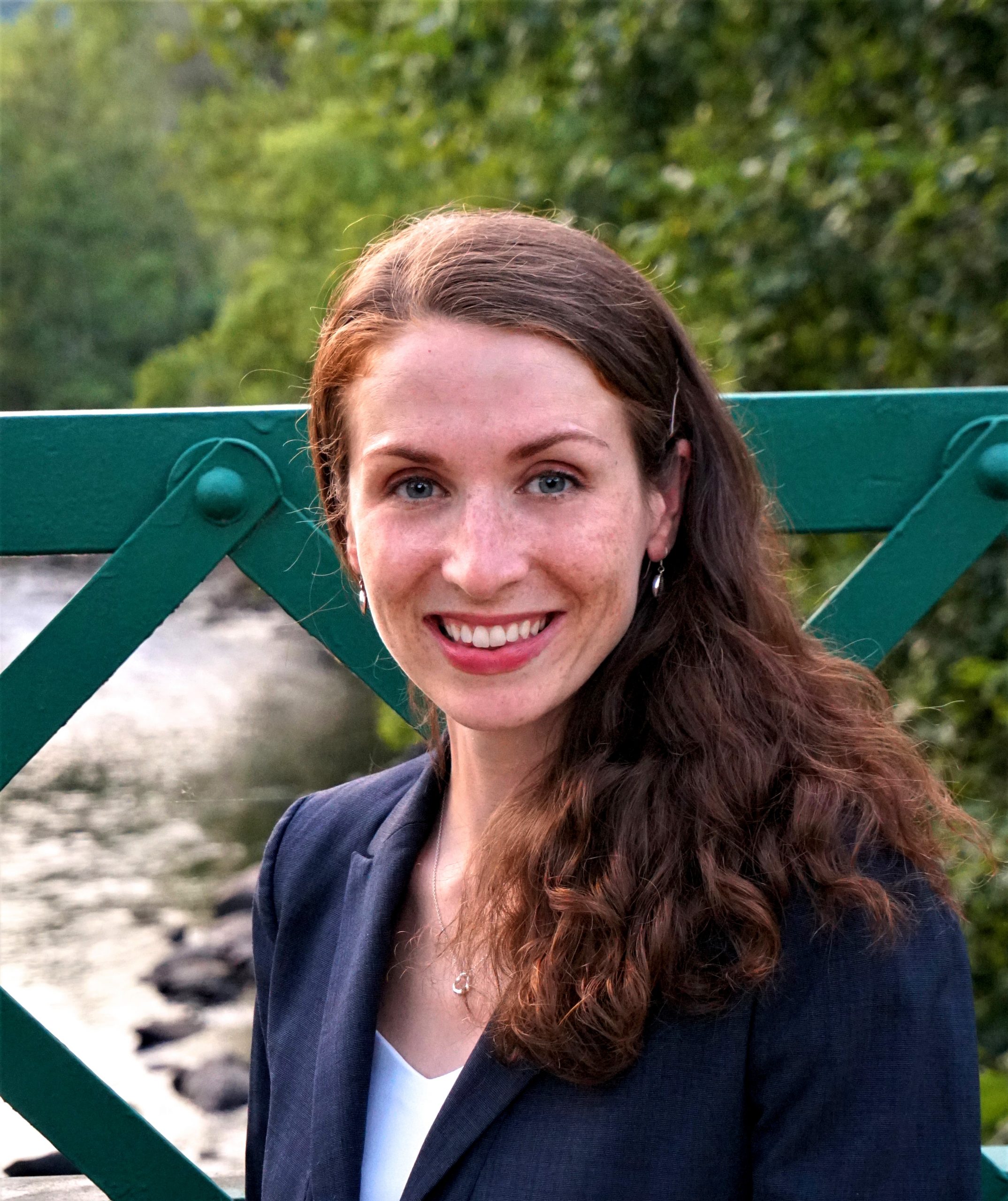
Participant Kristen Jabanoski, A.I.S., Inc. in support of NOAA Fisheries (National Oceanic and Atmospheric Administration)

